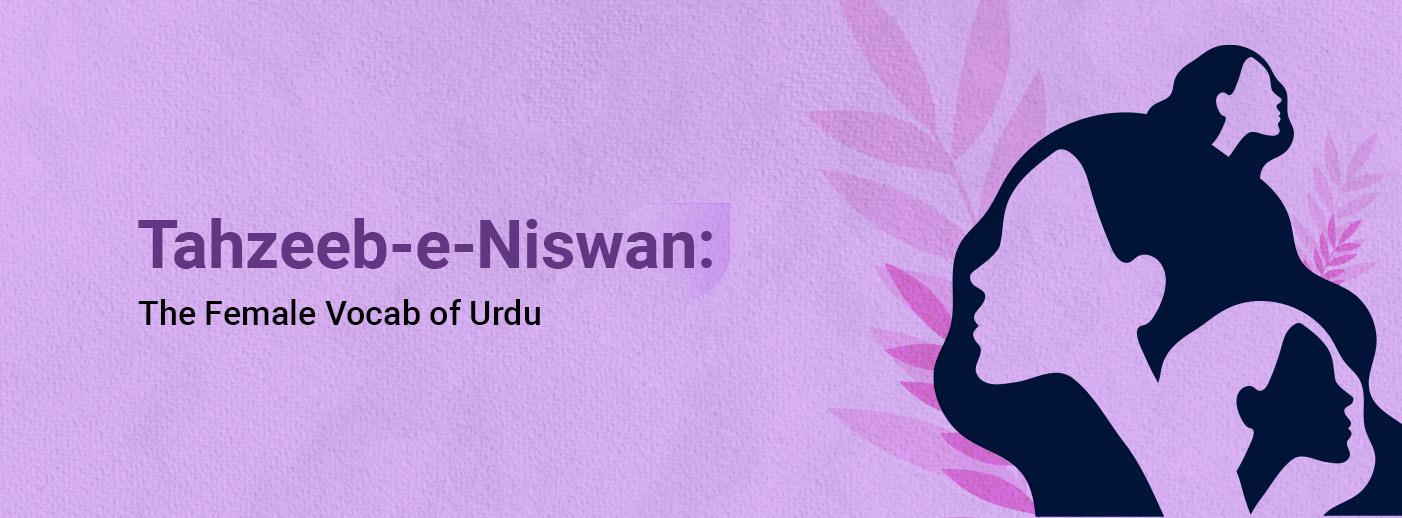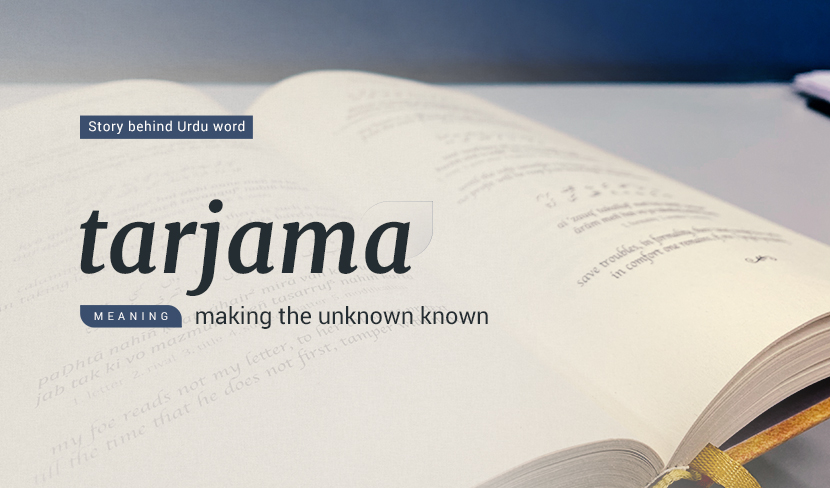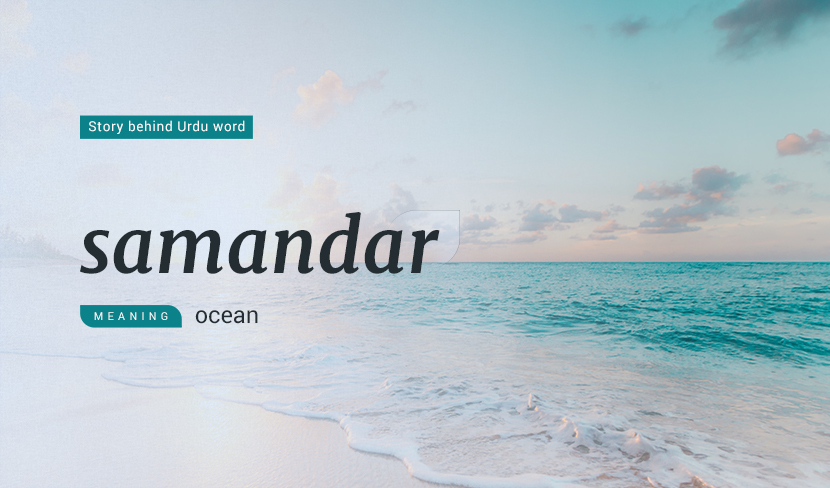زیادہ تلاش کیے گئے الفاظ
محفوظ شدہ الفاظ
کِھسیانی بِلّی کَھمبا نوچے
جسے غصہ آرہا ہو وہ دوسروں پر اپنی جھلاہٹ اتارتا ہے، بے بسی میں آدمی دوسروں پر غصہ اتارتا ہے، شرمندہ شخص دوسروں پر اپنی شرمندگی اتارتا ہے، کمزور کی جھنجھلاہٹ
چَمَنِسْتان
ایسا باغ جہاں پھول کثرت سے ہوں، ایسی جگہ جہاں دور تک پھول ہی پھول اور سبزہ سبزہ نظر آئے، گلزار، گلستان، باغ، پھولوں کا قطعہ، سبز کھیت
Tahzeeb-e-Niswan: The Female Vocab of Urdu

Madam, female, lady- are amongst the many ways to name the force that a woman is. In literature, women have found much admiration for their intellect, wisdom, emotions and beauty. Languages have acquired numerous ways to address women in their communities. Ranging from candid and lighthearted addressals to more sophisticated and elegant ones. From the elegance of "Mohtarma" to the regal vibes of "Begum," Urdu also surely knows how to pay homage to the women in our lives.
And in today’s blog, we’ll look at some of these very ways to address women in Urdu. The connotations, usages and meanings of these ways will give you more ways to address the women in your life with utmost grace and affection.
So, let’s begin!
Let’s start with terms that describe femininity and the things related to it. The term ‘Nisvaan’ which means female becomes ‘nisvaaniyat’ to refer to femininity, or womanliness. Similarly, ‘zan’ means woman while ‘zanaana’ means feminine. It can also refer to quarters or rooms reserved specifically for women.
Then we have the common address for women in Urdu ‘Mohtarma’. Feminine for ‘Mohtaram’, ‘Mohtarama’ means a woman or female worthy of respect. You can use the term ‘Mohtarma’ to refer to any woman you want to address, be it a professional or personal occasion.
Another term used to address a female is ‘Khatoon’. Also a common surname for women across the Indian subcontinent, ‘Khatoon’ means a noble lady, or a respected woman. When addressing more than one lady, you can use the plural term ‘Khavaateen’ instead. For example; “Kuch khavateen aap se milne ka intezaar kar rahi hain” would mean “some women are waiting to meet you”.
Similar to Khatoon is ‘Khanam’, which is also both; an address and a common surname. Khanam was originally used to refer to ladies of royal families, or the wives of Khans. It has now found common usage, as many people address women by using the term ‘Khanam’ irrespective of their connection to the ‘Khan’ community.
‘Begum’ is also another word which is used to refer to a lady. Commonly used for, educated, noble, married and older women, ‘Begum’ also has royal roots. It was used to refer to the ladies of Mughal families. Queens, princesses and queen mothers were honorifically referred to as ‘Begum’.
Let us now take a look at the Urdu vocabulary that defines women in relations. Wrapped in the elegance of Urdu’s flair, these words and terminologies refer to the most important women in our lives in a unique and graceful manner.
For instance, take the word ‘shareek-e-hayaat’. Although essentially gender neutral, the term shareek-e-hayaat has found profound usage while referring to one’s wife. ‘Shareek’ means partner (in something) while ‘Hayaat’ refers to life. So, shareek-e-hayaat becomes a partner in life. The term is as beautiful as it the relationship itself.
Other words to refer to a wife in Urdu are ‘Ahliya’, ‘Begum’, ‘Zaujah’ and the common one ‘Biwi’.
Another fascinating term is ‘Hamsheera’. This term refers to one’s own or real sister. Hamsheera directly translates to ‘one you’ve shared milk with’ indicating that both the people have been fed by the same mother. Interesting, isn’t it?
Some lesser known words like the Persian ‘Khwahar’ and the Arabic ‘Ukht’ also mean sister. The words ‘behen’, ‘aapa’, ‘baaji’ and ‘didi’ are relatively more commonly used in everyday life.
An with that, we come to the end of this treasure trove of feminine energy wrapped in Urdu's embrace. So go ahead, sprinkle some elegant stardust and surprise the special ladies in your life with your newfound vocab!
Delete 44 saved words?
کیا آپ واقعی ان اندراجات کو حذف کر رہے ہیں؟ انہیں واپس لانا ناممکن ہوگا۔





